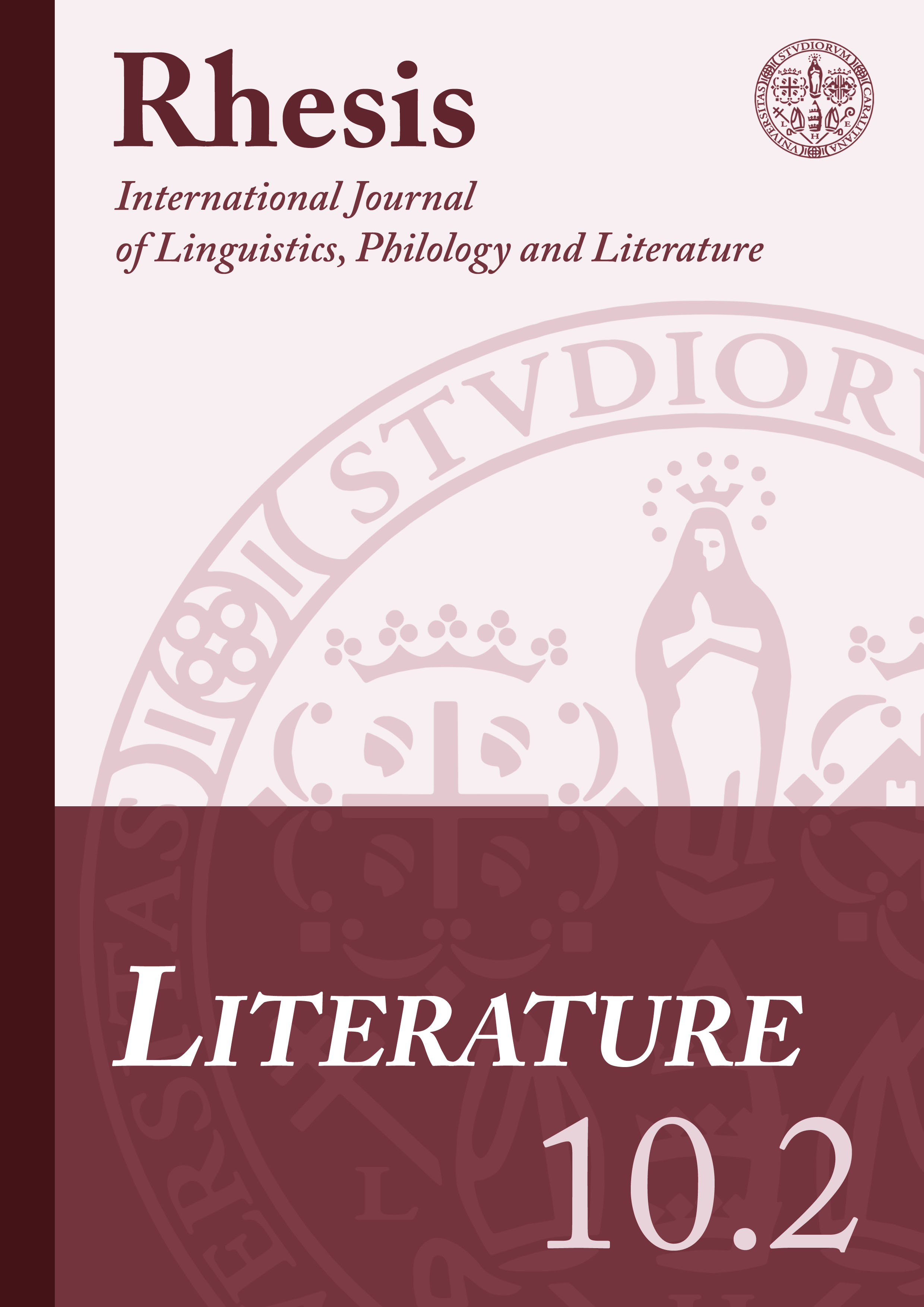The Bildungsroman and class consciousness: the role of shame in Kipps by H.G. Wells
Abstract
Kipps (1905) by Herbert George Wells establishes an ambiguous relationship with the nineteenth-century Bildungsroman: by parodying it and by caricaturing its archetypical characters, Wells’s work lays bare the values and cultural background on which the nineteenth-century production of the genre was based. In particular, given the focal role of the social compromise between bourgeoisie and aristocracy in this production, Wells’s novel has the effect of showing the weakening of the upper class as well as illustrating a transition phase of the middle class which had not yet been legitimised to constitute a new social model.
To this end, this study will follow two trajectories: on the one hand, it will illustrate Kipps’s deviation from the classic Bildungsroman on the structural and semantic levels, in which the values and ideals underlying the reference genre are reversed. On the other hand, it will examine the role of the emotion of shame in the three main phases of Kipps’s Bildung and the different traits that it assumes in the gradual emergence of a social reflection and a class consciousness in the protagonist’s experience. Being strictly related to the protagonist’s social ascent, shame involves both the social and the moral levels. As a social emotion, in this novel it implies social ranks and a real or internalised audience, while as a moral emotion it is crucial to the definition of the protagonist’s identity and to the acquisition of self-awareness through the comparison with the others. In terms of the reversal of the socialisation process expected by the traditional Bildungsroman, this analysis illustrates how the protagonist’s overcoming shame coincides with his distancing from the norm, from the class conventions that the novel emphasises and calls into question.
Downloads
Riferimenti bibliografici
Cao, Claudia (2016), Le riscritture di Great Expectations, Milano, Mimesis.
Carnevale, Antonio (2012), ‘L’imbarazzo della vergogna. Una ricerca sulle condizioni di possibilità di un’emozione sociale’, La Vergogna / The Shame [Special issue], Sensibilia 5, 65-80.
Dickens, Charles (1861), Great Expectations, London, Chapman and Hall.
Fussi, Alessandra (2018), Per una teoria della vergogna, Pisa, ETS.
Gilmour, Robin (2016) [1981], The Idea of Gentleman in the Victorian Novel (ebook edition), Abingdon, New York, Routledge.
Hardy, Barbara (2008), Dickens and Creativity, London-New York, Continuum.
Higgins, Richard (2008), ‘Feeling Like A Clerk in H.G. Wells’, Victorian Studies 50 (3), 457-475.
Lodge, David (2005), ‘Introduction’, in Wells, Herbert George (ed. James, Simon J.), Kipps. The Story of a Simple Soul, London, Penguin, xiii-xxxiii.
Maibom, Heidi L. (2010), ‘The Descent of Shame’, Philosophy and Phenomenological Research LXXX, 566-594.
Miniati, Francesco (2008), ‘Emozioni: la vergogna’, Studi Sulla Formazione 1 (1), 87-99.
Moretti, Franco (1987), The Way of The World. The Bildungsroman in European Culture, London, Verso.
Robbins, Bruce (2007), Upward Mobility and the Common Good. Toward a Literary history of the Welfare State, Princeton-Oxford, Oxford University Press.
Short, Emma (2019), Mobility and the Hotel in Modern Literature. Passing Through, London, Palgrave Macmillan.
Smiles, Samuel (1875), Thrift, London, Jonh Murray.
Thompson, Francis Michael Longstreth (1988), The Rise of a Respectable Society. A Social History of Victorian Britain. 1830-1900 (ebook edition), London, W. Collins.
Wells, Herbert George (ed. Vansittart, Peter 1993) [1905], Kipps. The Story of a Simple Soul, London, J.M. Dent.
Wells, Herbert George (ed. Wilson, Harris 1969), The Wealth of Mr Waddy, Carbondale Edwardsville, Southern Illinois University Press.
Wiesenfarth, Joseph J. (1999), ‘Phillip Pirrip’s Afterlife, or Great Expectations Again … and Again’, George Eliot-George Henry Lewes Studies 36-37, 70-84.
Williams, Bernard (1993), Shame and Necessity, Berkeley, Los Angeles-Oxford, University of California Press.
Wilson, Harris (1969), ‘Introduction’, in Wells, Herbert George (ed. Wilson, Harris), The Wealth of Mr Waddy, Carbondale-Edwardsville, Southern Illinois University Press, XI-XXIII.



